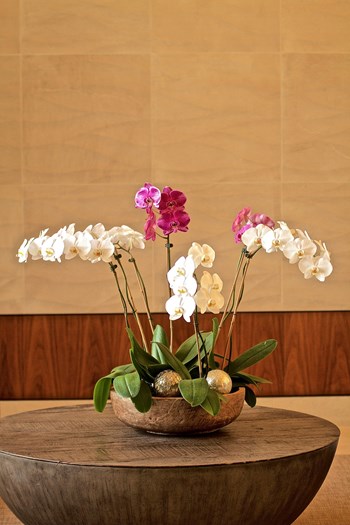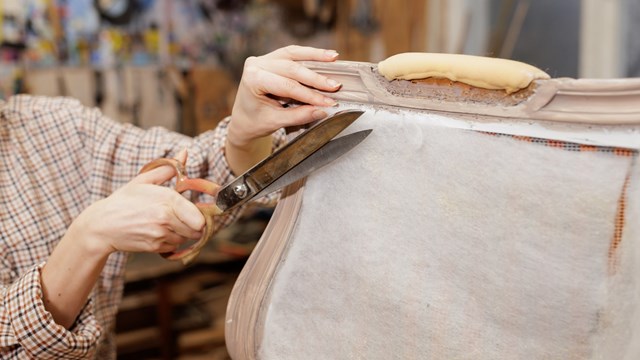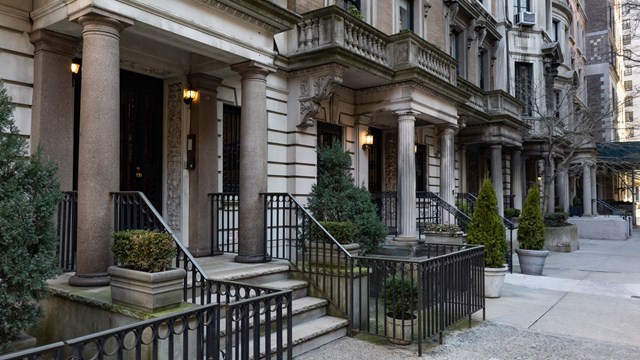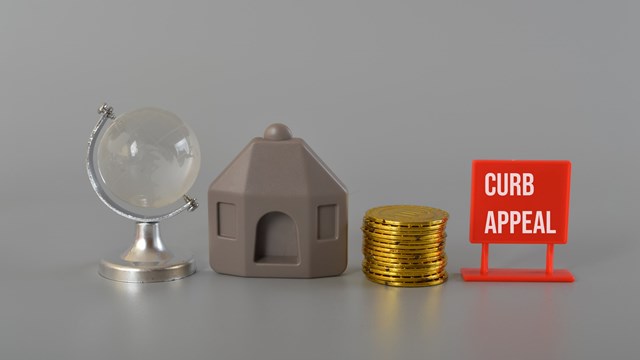
“It looks like a photo from a magazine!” is the exclamation many a manager, broker, potential buyer and board president have made upon stepping into an otherwise generic lobby and seeing a new, eye-popping floral arrangement brightening up the space. Flowers add a dash of elegance, color, and freshness to any room.
“Who doesn’t love fresh flowers?” asks Marilyn Sygrove, principle of Sygrove Design Associates, an interior design firm with clients in both New York and New Jersey. “They can bring aroma, romance, and intimacy to a space.”
“Flowers give a building lobby life, color and warmth,” says Daniel Wollman, CEO of Gumley Haft, a management firm based in New York. “They’re the second thing people see when they enter the lobby, after the doorman. Therefore, the arrangement needs to be impressive.”
Options
According to Sygrove, “Generally, high-end properties budget for fresh cut flowers in the lounge area of the lobby, and/or the doorman or concierge desk. More often though, we see live plants, since they have a longer life of several months vs. the cost of a weekly arrangement.”
Wollman notes that “In some locations we use artificial flowers, and they are gorgeous. The arrangements can be made so beautifully, you would not know they are artificial.”
Eugene Cordano, president of Brown Harris Stevens - New Jersey concurs that faux florals have come a long way, and can definitely be a tasteful alternative to the real thing. “There are florists and designers who charge a monthly service fee to come and change out very realistic looking artificial flowers weekly or monthly and those can be very elaborate arrangements since they’re not real,” he says. “These are generally cheaper than fresh flowers, but the goal is the same: on a budget, sans the smell or aroma of fresh flowers - which not everyone appreciates, especially during allergy season.”
Seasonality
Floral selections vary by season, and most interior pros recommend arrangements that take advantage of what’s blooming at a given time, to reflect the changes in mood and style that the changing seasons bring. “Orchids are usually the year-round plant of choice,” says Sygrove, “but of course there are also seasonal plants like amaryllis and poinsettias around Christmas. In winter, designers may also choose branches of bittersweet and miniature evergreens. In autumn and around Thanksgiving, you may even see an arrangement of gourds in a variety of colors and shapes. Spring brings cherry blossoms or quince branches, which can be a stand-alone statement or the foundation of larger flower arrangements. Peonies are also popular. In spring we also see pots of spring bulbs - tulips, daffodils, and hyacinths. The summer season especially offers fabulous options like lush hydrangeas and roses, lilies and gladiolus.”
That said, these days it is relatively easy to get any kind of flower one wants at any time of year - particularly in the tri-state area. Many flower vendors purchase from international flower markets, some of which are in South America where their summer is our winter, or in tropical climates where year-round production is possible.
What Does it Cost?
“As far as a budget item, a florist is an easily controllable expense,” says Wollman, speaking from experience. “The board sets a realistic budget and may increase it seasonally. Costs can range from $600 to $1,000 per month. Compared to a gut renovation of a lobby, or a roof replacement or façade repairs, flowers are a low-cost enhancement for lobbies without any long-term commitment. Sometimes a board member - or in rare cases a committee - may request certain flowers to be placed, but in most cases the florist will decide on the arrangement.”
First Impressions
Along with tasteful wall art and good lobby lighting, fresh flowers and floral arrangements in general can help in marketing apartments. They make a good first impression, and you only get one chance to do that. “It’s an inexpensive way to brand the building with a welcoming first impression,” says Cordano. “Fresh flowers do help sales, because they connote that someone is taking care of those flowers/plants etc., and that if the building is concerned about those small details, that suggests that the building has got the big things covered too.”
“I think this kind of small touch is beautiful and elegant,” says Joanna Mayfield Marks, also with Brown Harris Stevens, in their Brooklyn office. “It shows care, affluence and luxury. It is a form of disposable wealth, and appeals to everyone on an aesthetic and health level. Plants purify the air. Flowers smell and look good. The care and attention that goes into tending plants makes me feel like a building is well cared for. Flowers increase curb appeal - and as we know, curb appeal is a huge factor in buyer's preferences, perhaps even as important as security. These small touches are healthy, beautiful, and luxurious.”
Flowers and plants, whether fresh cut, faux, or perennial, add a panache to a building that increases both mood and marketability - and in a competitive market, that may actually be more of a necessity than a luxury.









Leave a Comment